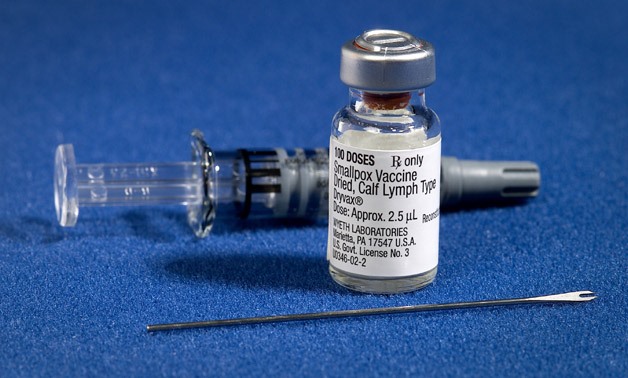
Vaccine - creative commons via Wikimedia commons
CAIRO – 18 July 2017: One in every 10 children (12.9 million infants) across the world did not receive vaccinations in 2016, the World Health Organization (WHO) and the United Nations Children Fund (UNICEF) said in a joint press release on Monday. According to the WHO and UNICEF press release, these children “missed the first dose of the diphtheria-tetanus-pertussis (DTP)-containing vaccine, putting them at serious risk of these potentially fatal diseases.”
Immunization is one of the most successful and cost-effective public health interventions, preventing between 2–3 million deaths every year from diphtheria, tetanus, whooping cough and measles.
"Most of the children that remain unimmunized are the same ones missed by health systems," says Dr Jean-Marie Okwo-Bele, director of Immunization, Vaccines and Biologicals at WHO. "These children most likely have also not received any of the other basic health services. If we are to raise the bar on global immunization coverage, health services must reach the unreached. Every contact with the health system must be seen as an opportunity to immunize."
Chief of Immunizations at UNICEF Dr. Robin Nandy said, "Immunization is one of the most pro-equity interventions around,” before adding, “bringing life-saving vaccines to the poorest communities; women and children must be considered a top priority in all contexts."
The two agencies added that the global immunization coverage target falls short of 90 percent, as the percentage of children who received their full course of routine immunizations has stalled at 86 percent since 2010, with no significant changes in any countries or regions during 2016.
For the first time, WHO and UNICEF have collected disaggregated data on immunization coverage at the sub-national level. According to provided data by WHO, an estimated 10 million infants need to be vaccinated in 64 countries across the world in order to reach a 90 percent coverage in all countries. Of these children, 7.3 million live in fragile or humanitarian settings, including countries affected by conflict. Four million of them also live in just three countries – Afghanistan, Nigeria and Pakistan – where access to routine immunization services is critical to achieving and sustaining polio eradication.
According to UNICEF’s Egypt country office, 91 percent of children aged 18-29 months were fully immunized in 2014, with 91.4 percent of them in urban areas, while 90.9 percent were in rural areas.
WHO and UNICEF recommend strengthening the efforts to reduce inequalities related to household economic status and mother’s education in many countries in order to improve immunization coverage.

Comments
Leave a Comment